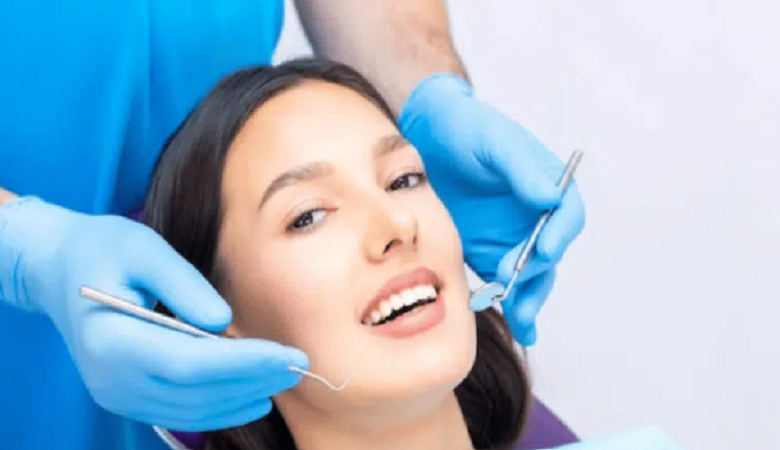How Proper Hygiene in Dental Clinics Enhances the Longevity of All-on-4 Dental Implants

All-on-4 dental implants offer patients a life-changing solution by providing a full arch of teeth supported by just four implants. At Temecula Dental Implants and Oral Surgery, Menifee, CA, this innovative procedure is highly effective, but its long-term success is not solely dependent on surgical technique or the quality of materials used. Proper hygiene, both during the procedure and in follow-up care, plays a crucial role in ensuring that the implants last for years.
In this article, we’ll explore how maintaining high standards of cleanliness in dental clinics can significantly enhance the longevity of All-on-4 dental implants and why this aspect of care is often the foundation for successful outcomes.
1. The Impact of a Sterile Environment on Implant Success
In dental implant surgery, ensuring a sterile environment is critical to preventing infections, which can compromise the success of the implants. All-on-4 implants are placed directly into the jawbone, creating a pathway for bacteria to enter the body if proper sterilization protocols are not followed.
The Importance of Sterile Procedures:
- Prevents post-surgical infections: One of the most significant risks during any dental surgery is infection, which can lead to implant failure. If bacteria are introduced to the surgical site, it can result in peri-implantitis, an inflammation that affects the surrounding tissues and bone. Proper sterilization of instruments, tools, and the surgical site ensures that the risk of infection is minimized.
- Enhances osseointegration: The success of All-on-4 implants depends on a process called osseointegration, where the titanium posts fuse with the jawbone. If the area becomes infected, osseointegration can be disrupted, leading to a loose or failed implant. Maintaining a sterile environment helps promote smooth healing and proper integration.
Fun Fact: Peri-implantitis can occur in approximately 10% of dental implant cases, but the risk is dramatically reduced when proper hygiene practices are in place.
2. The Role of Sterile Instruments and Tools
The tools and instruments used during All-on-4 dental implant procedures must be meticulously cleaned and sterilized to avoid cross-contamination and the spread of bacteria.
Key Sterilization Practices in Dental Clinics:
- Autoclaving instruments: Dental tools are cleaned in high-pressure autoclaves, which use steam to kill bacteria, viruses, and fungi. Autoclaving is one of the most effective methods of sterilization and is essential in ensuring that instruments used during surgery are completely germ-free.
- Single-use disposables: Many clinics use disposable tools and items, such as needles and gauze, to further reduce the risk of contamination. These items are used once and then discarded, ensuring that each patient receives sterile materials.
- Regular equipment maintenance: Larger equipment, such as drills and implant placement tools, also need to be regularly cleaned and disinfected. Proper maintenance and cleaning prevent the buildup of bacteria and ensure that these devices function correctly during the procedure.
Fun Fact: The autoclave, one of the most widely used sterilization devices, can reach temperatures of 250 to 273 degrees Fahrenheit, ensuring a sterile environment for all surgical instruments.
3. Clinic Cleanliness and Its Impact on Patient Confidence
In addition to promoting the physical success of the implants, a clean and well-maintained dental clinic fosters patient trust. When patients see that their dental clinic adheres to the highest standards of cleanliness and hygiene, they feel more confident about the care they are receiving. For a spotless, refreshed space, visit greenapplecleaningmd.com for reliable, eco-friendly services customized for every environment.
Why Cleanliness Enhances the Patient Experience:
- Boosts patient confidence: Patients are more likely to trust their dentist and the success of their All-on-4 procedure when they observe a clean, organized environment. A spotless clinic reflects professionalism and a commitment to patient safety.
- Reduces patient anxiety: Dental procedures can be stressful for many patients. A clean and orderly clinic creates a calm atmosphere, reducing anxiety and allowing patients to feel more at ease during their appointments.
Fun Fact: Studies show that patients are more likely to follow their dentist’s post-surgical care instructions when they have confidence in the clinic’s hygiene standards, which contributes to better long-term outcomes.
4. Post-Operative Hygiene: The Patient’s Role in Implant Longevity
While proper hygiene during the procedure is critical, maintaining the longevity of All-on-4 implants also depends on the patient’s ability to care for their new implants post-surgery. Dental clinics play an essential role in educating patients on how to maintain optimal oral hygiene once they leave the clinic.
Post-Surgery Hygiene Tips:
- Daily cleaning: Patients should brush and floss around their implants just as they would with natural teeth. Using a soft-bristle toothbrush and a non-abrasive toothpaste helps protect the gums and implant surfaces.
- Regular dental check-ups: Routine visits to the dentist are necessary to monitor the health of the implants and the surrounding gum tissue. During these visits, dentists will perform professional cleanings to remove any plaque or tartar buildup.
- Use of specialized cleaning tools: Water flossers, interdental brushes, and antibacterial rinses can be recommended to help patients clean around the implants more effectively, ensuring that plaque and bacteria don’t accumulate.
Fun Fact: The average dental implant, when cared for properly, can last 20 years or more, but with excellent hygiene practices, patients may enjoy their implants for a lifetime.
5. Long-Term Maintenance: The Dentist’s Role in Ensuring Implant Longevity
Proper hygiene in the clinic doesn’t end after the surgery is complete. Long-term maintenance of the All-on-4 dental implants requires regular follow-ups, during which dental professionals play a key role in keeping the implants healthy.
Essential Long-Term Maintenance Practices:
- Professional cleanings: Dentists will use specialized tools to clean around the implants during routine check-ups. These tools are designed to avoid damaging the implants while effectively removing any plaque or tartar.
- Monitoring for signs of infection: Regular check-ups allow dentists to catch any early signs of infection or inflammation, such as peri-implantitis. Early detection and treatment can prevent further complications and extend the lifespan of the implants.
- Ensuring proper fit: Over time, the prosthetic teeth attached to the implants may need adjustments. Regular visits allow dentists to ensure that the implants remain secure and comfortable, preventing issues that could arise from a loose or ill-fitting prosthesis.
The success and longevity of All-on-4 dental implants rely heavily on maintaining high standards of hygiene both during the procedure and throughout the patient’s follow-up care. A sterile environment during surgery minimizes the risk of infection, while proper post-operative care, professional cleanings, and patient education ensure that the implants remain functional and healthy for years to come. By prioritizing cleanliness, dental clinics not only enhance the lifespan of All-on-4 implants but also build trust and confidence with their patients, leading to better overall outcomes.




